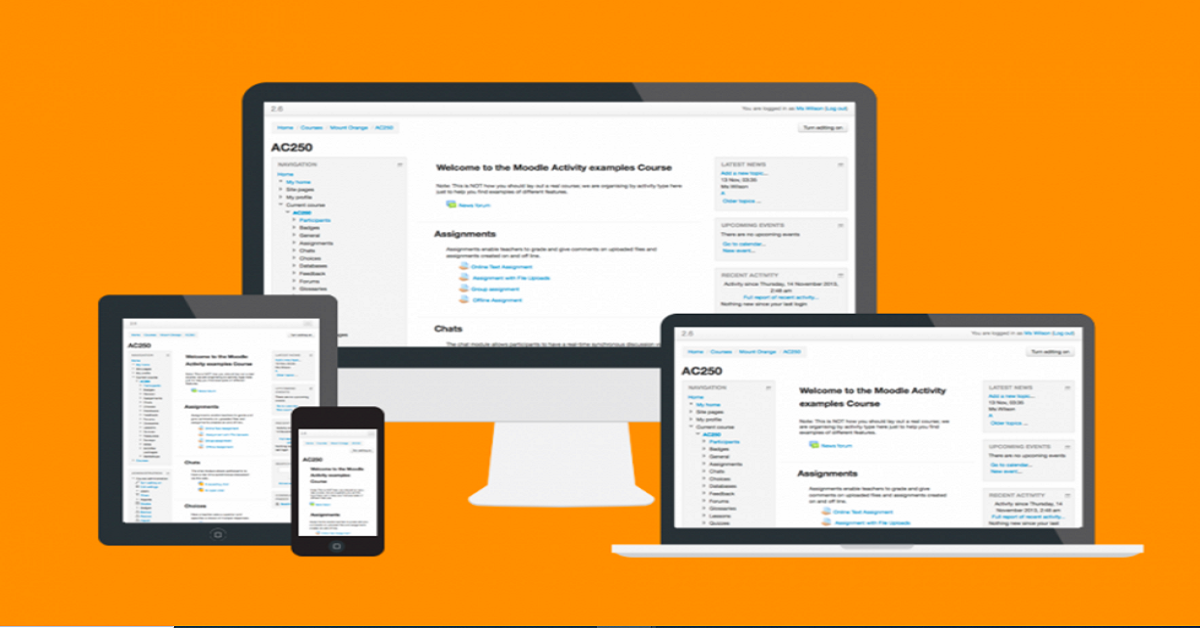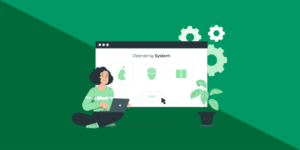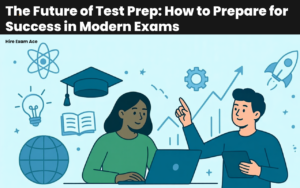Does Moodle Track Tabs? The Truth About Monitoring, Switching, and Student Privacy
Moodle is one of the utmost current Learning Running Systems (LMS) used by schools, colleges, and universities. It’s important for presenting online classes, assignments, and exams. But as digital learning grows, so do worries around student monitoring. Many students wonder: “Can Moodle track if I switch tabs?” or “Will I get trapped for checking notes?” This guide clears the air. We’ll explore Moodle’s actual tracking powers, how proctoring tools work, what teachers see, and what rights students have.
1. Can Moodle Tell When You Leave the Page?
1.1 How Moodle Edges with Browsers
Moodle runs on your web browser, and it can only “see” what the browser tells it. It doesn’t have system-level access like apps do. So, Moodle can’t watch everything you do—but it can log detailed actions through browser events, like clicking a button or directing to another page in Moodle.
1.2 What Events Are Naturally Logged
Moodle tracks actions such as clicking on buttons, page visits and quiz-related challenges. It keeps track of the time you spend on the page, how long you take a test and the time you complete the test. If you’re a lazy person the system records that as well. Just because it keeps track of the time you spend on a page doesn’t indicate that it understands the reason you weren’t active.
1.3 Is Page Inactivity Measured Leaving the Page?
Not accurately. If you’re idle for too long—say, you stop clicking or typing—Moodle may reflect you inactive. But this doesn’t mean you’ve left the page or switched tabs. Maybe you were reading a long way. Moodle just records the lack of communication, not your actual location on the device.
1.4 Browser Performances That Initiation Session Relaxation
Browsers and Moodle both have timers. If you’re slothful too extended (usually 30 to 60 minutes), Moodle may record you out. This isn’t proof of cheating—it’s a security setting to avoid session misapplication. It simply helps protect your account if you walk away.
2. Can Moodle Track Tabs?
2.1 Thoughtful Browser Tab Monitoring Skills
Web browsers don’t share your tab history with websites. For privacy reasons, sites like Moodle can’t know what other tabs are open. They only receive info from the tab you’re dynamically using. This is a key limit that defends your online performance from being fully observable.
2.2 What Moodle Tracks by Avoidance (Without Plugins)
By default, Moodle doesn’t track tab switching. It only logs actions on its own platform. If you open another tab or switch to a different app, Moodle isn’t automatically advised unless detailed code or a plugin is added.
2.3 How Tab Activity Is Not Registered by Average Moodle
There’s no built-in feature in Moodle that says “student opened a new tab.” You could be converting tabs, and Moodle wouldn’t know except a proctoring tool or custom calligraphy is running. Standard Moodle does not monitor tab performance on its own.
2.4 When Third-Party Plugins Come into Play
Some organizations add plugins that spread Moodle’s features. These may consist of event trackers that record when a browser tab loses motivation. However, even these can’t tell what’s in the other tab—only that you left the current one. Still, they can raise flags if you’re continuously converting away during exams.
3. Can Moodle See If You Switch Tabs?
3.1 Difference Between Page Leave and Tab Switch
Leaving the page means you’ve closed the tab or navigated away from Moodle. Switching tabs means the Moodle tab loses focus. They’re different. Moodle doesn’t automatically treat a tab switch as leaving the page—unless extra monitoring tools are in place.
3.2 JavaScript Events That Detect Focus and Blur
Moodle is able to use JavaScript to identify “blur” (when the tab goes out of focus) as well as “focus” (when it’s active and then it’s active). They’re not set by default but customized scripts are able to log the events. A few institutions utilize this feature for tests to determine the frequency with which students switch off regularly.
3.3 Can Moodle Detect “Window Blur” Events?
Yes, if enabled. Blur events can signal a tab switch or minimization. But the detection is basic. Moodle doesn’t know why you switched tabs or what’s in the other window. It simply logs that focus was lost at a certain time.
3.4 What Proctors or Teachers Can Actually See
Without plugins, teachers can’t see tab switching. They only see the Moodle logs: when you started a quiz, clicked a button, or submitted. If a plugin logs blur/focus events, they might see when you switched away—but not what you did outside Moodle.
4. Can Moodle Detect Switching Tabs?
4.1 Moodle vs. External Proctoring Tools
Here’s the big difference: Moodle alone doesn’t monitor much. But when it’s paired with tools like Proctored or Safe Exam Browser, detection capabilities go up. These tools can monitor tab switches, screen activity, and even your webcam.
4.2 Technologies That Monitor Switching
Invigilating tools can detect window switches, avoid right-clicking, and block tab direction finding. Safe Exam Browser, for example, locks down the computer so only the exam is nearby. These tools are much stricter than Moodle itself.
4.3 How Institutions Customize Moodle to Enhance Detection
Some schools embed scripts or use APIs to monitor behavior during toefl exams. This may include logging when students lose focus or switch windows. These customizations aren’t default, but they’re becoming more common as academic integrity becomes a bigger concern.
4.4 Detection Limitations: Incognito, Dual Monitors, and More
There are workarounds students try, like using incognito mode or dual monitors. However, proctoring tools often detect these tricks. Still, no system is perfect. Many setups can’t distinguish between harmless multitasking and cheating, leading to false flags.
5. Does Moodle Track Tabs During Quizzes or Exams?
5.1 How Quiz Situations Are Organized in Moodle
Moodle competitions can be tailored with severe situations: time limits, one-question-at-a-time views, or limitations on backtracking. However, these are all Moodle detailed abilities. None of these structures, by themselves, can agree tabs to be followed.
5.2 Time-Limited Quizzes and Focus Loss Detection
Some Moodle quizzes may trigger warnings if you switch away for too long. This only ensues if blur detection is allowable. For example, if you’re taking a test and the page loses focus, Moodle might banner that as a trouble or uncertain presentation.
5.3 Full-Screen and Safe Examination Browser Method
Some universities force full-screen mode or require Safe Exam Browser. This tool locks your screen, avoids tab converting, and inactivates crosscuts. If you try to leave, it ends your test. But again, this is not defaulting Moodle—it’s additional software.
5.4 Can You Get Flagged for Tab Activity?
Yes—if blur detection or a proctoring tool is used. You may be flagged for suspicious activity. It doesn’t constantly mean a penalty, but your instructor may analyze your session and ask for clarification.
Read This Blog Also: What is a Hypothesis? A Complete Guide with Types, Steps, and Examples
6. What Ensues If You Adjustment Tabs in Moodle?
6.1 When Are You Notified or Warned?
In most cases, Moodle won’t warn you. If your school uses a plugin or browser lockdown tool, you might get a warning like “You have left the test window.” It depends on the situation. Repetitive cautions can lead to action from coaches.
6.2 Will It Distress Your Examination Score or Growth?
If tab-switching is identified as doubtful, your score might be pending or revised. Some schools auto-submit the quiz if you leave the test window. Others let you continue but send a report to the teacher.
6.3 Automatic Submission and Lockouts
Lockdown browsers or Safe Exam Browsers may auto-submit your test if you try to cheat or switch away. Moodle alone won’t do this. It’s the added software that enforces lockouts.
6.4 Risk of Academic Honesty Violations
Common tab converting may be seen as deceit. Even if it is accidental, it could initiation an take my online exam. That’s why it’s vital to know your school’s strategies before starting any online assessment.
7. Can Moodle Sense Screen Distribution or Exterior Assistance?
7.1 What Moodle Can See on Its Own
Moodle can’t see if you’re screen sharing or calling someone. It doesn’t have access to your system or webcam unless you give it permission. Without plugins, Moodle only tracks actions within its own platform.
7.2 When Screen Monitoring Tools Are Used
Proctoring tools can detect screen sharing, background apps, or other monitors. If enabled, they can block screen recording tools and raise flags if suspicious apps run during a test.
7.3 Webcam and Microphone Entree During Invigilated Tests
Tools like ProctorU or Responds Monitor can record your webcam and audio. They watch for unusual behavior—like someone whispering answers to you. These tools require permission, and students usually know when they’re being used.
8. What Moodle Logs Actually Show
8.1 Activity Logs: What’s Tracked in the Backend
Moodle saves complete logs of the whole thing you do on its display place: logins, quiz start times, steering, and time spent on each activity. Tutors can view these logs to check your involvement and test movement.
8.2 Examples of Student Log Data
Logs might say: “User opened quiz,” “Question 3 started,” “Quiz submitted.” They may also show timestamps and IP address changes. However, they don’t show what other apps or sites you opened.
8.3 Understanding Meeting Times, IP Changes, and More
If your IP address changes mid-exam, it could raise a red flag. It may recommend using a VPN or changing networks. Trainers often use these logs to examine honesty worries.
8.4 What Educators Can and Can’t Do with Logs
Tutors can appraise logs, but they can’t see your screen or browser history. They use this data to notice designs. But without clear indication, it’s hard to blame someone for cheating based on logs alone.
9. Invigilating Utensils That Work with Moodle
9.1 Top Proctoring Software Integrated with Moodle
Several proctoring tools integrate with Moodle, including:
- Respondus LockDown Browser
- ProctorU
- Safe Exam Browser
These tools help enforce strict test-taking environments.
9.2 What Each Tool Can Monitor (Tabs, Faces, Screens)
These tools can monitor:
- Webcam and face tracking
- Tab or window switching
- Keystrokes and mouse movement
- Full-screen enforcement
They add a layer of surveillance that Moodle itself lacks.
9.3 Are They Always Active or Optional?
Proctoring tools are only active during certain quizzes or exams. Your instructor or school must enable them. If your exam doesn’t mention a lockdown tool, it’s likely not being monitored beyond Moodle’s basic logs.
10. Student Privacy and Ethical Questions
10.1 Is Tab Tracking an Invasion of Privacy?
It depends. Chasing tab adjustments with no framework can feel aggressive, especially if you’re highlighted unethically. Students justify clear procedures on what’s watched during tests.
10.2 What Rights Do Students Have?
You have the right to know what’s being tracked. Schools must inform you if they’re using webcams or proctoring software. In most regions, consent is required.
10.3 Transparency in Online Exam Policies
Always read your school’s online challenging policy. If they use tools like Respondus or Safe Exam Browser, they must reveal it. Ask questions if you’re insecure about what’s being followed.
10.4 Legal and Institutional Limitations
Some secrecy laws check what schools can monitor. In many nations, recording students without approval is unlawful. Schools must comply with local privacy guidelines.
11. Mutual Traditions and Confusions
11.1 “Moodle Knows Everything I Do Online”
False. Moodle knows what you do on Moodle. It doesn’t track your Google searches, chats, or file downloads.
11.2 “Switching Tabs = Immediate Disqualification”
Not always. Switching tabs might trigger a flag, but it doesn’t mean instant punishment. Many schools’ review activities before taking action.
11.3 “Private Browsing Hides Me from Moodle”
Nope. Incognito mode only hides activity from your local browser history. Moodle still logs your actions if you’re logged in.
11.4 “All Teachers Monitor Tab Activity”
Most don’t. Only if extra tools are installed can tab monitoring occur. And not all instructors choose to use them.
12. How to Stay Focused and Avoid Issues
12.1 Tips to Avoid Switching Tabs Accidentally
- Turn off notifications
- Close unnecessary tabs before starting
- Use full-screen mode
- Focus on one device
12.2 How to Check If a Test Uses Monitoring Tools
Look for exam instructions that mention “lockdown,” “Respondus,” or “Safe Exam Browser.” If unclear, ask your instructor before starting.
12.3 What to Do If You Have Technical Glitches
Take screenshots of issues and report them immediately. Most instructors understand genuine problems—just don’t wait too long to explain.
13. Instructor’s Perspective
13.1 Why Teachers Monitor Activity During Online Exams
Instructors want to ensure fairness. Cheating online is easier than in person, so they use tools to level the playing field.
13.2 Tools Available to Educators Inside Moodle
Teachers can access quiz settings, logs, time-stamps, and completion rates. These tools help spot odd patterns, like a quiz finished in half the expected time.
13.3 Limitations Teachers Face with Enforcement
Without full proctoring, teachers can’t see your screen. They rely on logs and reports—and must often investigate before accusing a student.
14. Case Studies
14.1 Real-World Student Experiences with Moodle Monitoring
Some students have been wrongly flagged for technical glitches. Others switched tabs to play music and got a warning. These stories show the need for better systems and clearer communication.
14.2 Institutional Policies on Tab Activity
Some academies auto-flag students for leaving the quiz tab, others give numerous cautions. It differs by establishment, so always check your school’s plans.
14.3 Examples of Flagging and Appeals
In one case, a student was flagged for using split-screen notes during an open-book quiz. They appealed and were cleared after showing exam instructions allowed it.
15. Final Thoughts
Moodle alone isn’t undercover work on you—but schools can add tools that do more. Always know what’s presence observed and follow your school’s rules. If you’re insecure, ask questions. With the right prep and outlook, you can take your exams self-assuredly—and reliably.
16. FAQs – Quick Answers
- Does Moodle automatically detect tab switching?
No, unless extra tools or scripts are added. - Can my teacher see what tabs I have open?
No. Only your Moodle activity is visible. - What happens if I lose the internet and reconnect?
Moodle saves answers periodically. Reconnect quickly and report the issue. - Is using dual monitors considered cheating?
If it violates test rules, yes. - Can Moodle perceive copy-pasting?
From time to time, but not always. - Can I practice the split-screen method?
Yes, unless a lockdown browser blocks it. - What does “focus lost” mean in Moodle logs?
It means you left the quiz window—possibly by switching tabs or minimizing.







